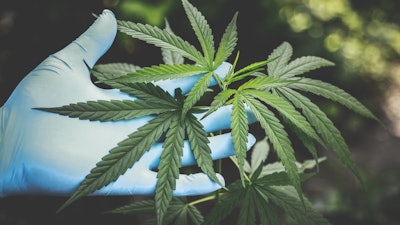
Supply chains are used in each and every sector of business -- massive systems of organizations, activities, people, information and resources involved in supplying products or services to customers across the globe. As with all cannabis-touching businesses, from growers to retailers, the cannabis supply chain is a highly regulated area that faces unique challenges due to cannabis not being legal at a federal level.
Since cannabis is still a new uncharted territory for many states, it’s important to know what differentiates the cannabis supply chain from other industries, especially when it comes to food-related products like edibles.
The industry has over time developed entirely new cannabis tech companies dedicated solely to seed-to-sale technology, or rather, tracking the movement of cannabis throughout any given state’s supply chain.
That’s why it’s pertinent to acquire a deep understanding of regulatory and compliance guidelines related to cannabis.
Legislative compliance and reporting
The legal status of cannabis evolves every year. Each and every state that has legalized cannabis, for either medicinal or recreational purposes, has an entirely independent supply chain from start to finish, so the first crucial step is to make sure you’re complying with all the laws and regulations in each state. The cannabis industry has a rapidly shifting legislative environment, and being outside of compliance even once can trigger shutdowns, fines and even jail time.
From cultivating the plant to selling the product, laws are enforced to make sure that all proper precautions are in place. The cannabis industry is rapidly growing at a 15% year over year increase, but it’s still very new. Beyond that, the industry at large still carries a negative stigma, so any missteps in the supply chain can result in damaging associations to your brand and further hurt the reputation of the industry overall.
In order to make sure companies are following the rules, regulatory auditing, done by the state, occurs to hold cannabis businesses accountable. Every action, every change in status or movement of the plant, and every change of custody must be reported to the state in specific ways and in real-time. This is the key to keep your business operating at a legal status.
Supply chain and cannabis edibles
Edibles are unique to the cannabis supply chain in that they undergo additional safety and potency testing, often mandated by the state. For example, a typical supply chain for edibles would involve a grower harvesting plants, then performing the initial drying in-house. The dried flower would then be transported to an extractor, who performs various processes to concentrate the THC, CBD and many other naturally occurring compounds desired by the end consumer. This concentrate must be tested for various pesticides, heavy metals and potency, at which point it can be sold to the edible manufacturer.
After the finished goods are ready, another quality assurance test is performed, at which point the edibles can finally be labeled for sale. Each edible must be labeled with a special tracked unique identifier, which enables law enforcement and regulatory agencies to track the item back to the concentrates, the harvested plants, and even the mother plants that the clones we originally cut from. To reiterate, every single step is recorded.
Streamlining seed-to-sale transactions
The cannabis industry has different compliance companies working diligently to help streamline time-consuming activities. This includes creating labels, invoices and updating menus with available inventory through a live marketplace. Some companies have software that is designed to match real-life workflows and does much of the state reporting behind the scenes automatically.
Even for industry veterans, it can be extremely confusing to know whether or not you’re doing the right thing and taking the right next steps all the time. The biggest perk of using a company focused on handling compliance for your business is that they’ll typically include seasoned cannabis industry experts. They’ve been in your shoes before, they speak the language of cannabis, and their sole purpose is to make your life easier.
Compliance activities provide minimal value for cannabis businesses outside of keeping them legal and in business. Compliance companies recognize that this can feel like a huge waste of time and money for business owners, and building a business is already one of the most difficult things a person can do. As such, these companies blend compliance and seed-to-sale tracking activities with certain business-critical activities - such as inventory management and point of sale.
The cannabis industry is ever evolving, and the only way to get familiar with it is to take it slow and careful. The industry is growing rapidly and welcomes more players to the game, just make sure that if and when you do open a cannabis business, follow the rules to ensure that you’re set up for success.


















